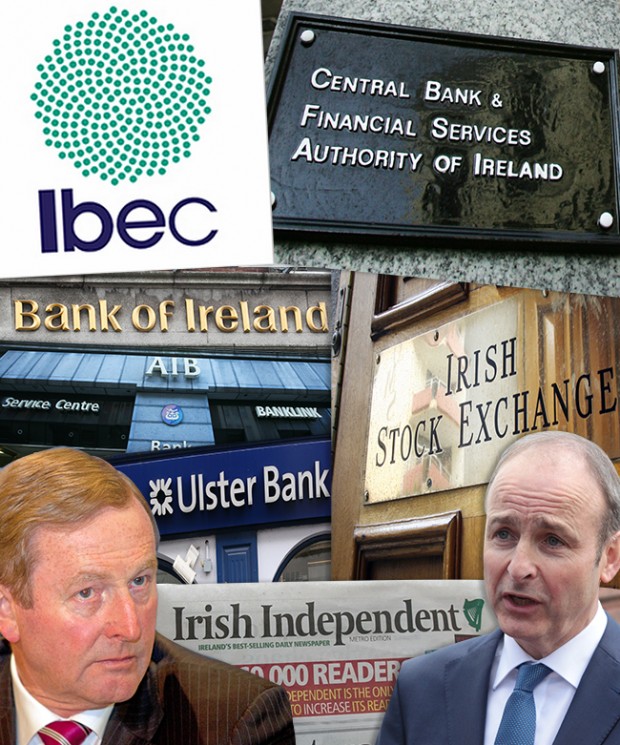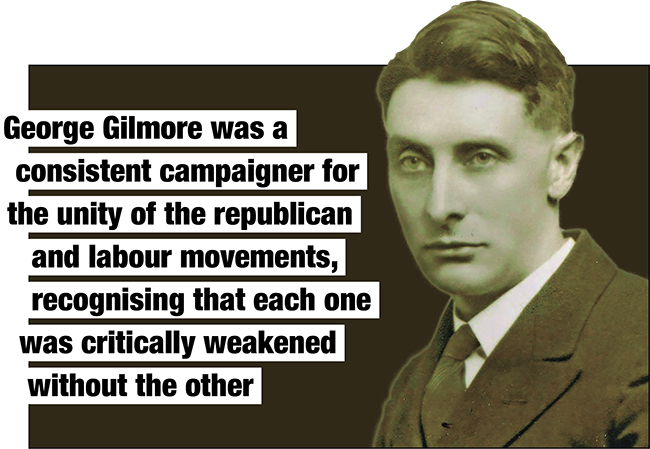3 October 2016 Edition
Class interest determines our national struggle

• “In real life there are very few traitors as most people follow their own class interest”
Collins may have genuinely seen the Treaty as something which could be used but, as history has shown us, it was the class forces that supported the Treaty who used Collins instead
WHEN James Connolly warned that partition would produce a carnival of reaction, North and South, he knew that the class forces involved in the Irish fight for freedom would assert their own interests at all crisis points.
And it was in that context that he also warned that the Irish working class – which had no material wealth to protect – was the only incorruptible inheritor of that fight.
The key word here is ‘incorruptible’. In 1916 there was a broad basis to the demand for freedom but, as the fight developed, different elements hived off.
It is commonplace (and I’ve done it myself) to decry the traitors who sold out the fight but, in reality, these different forces just gave priority to their class interests.
As a famous republican, George Gilmore – a prominent ‘gunman’ in the Tan War and a prominent Left ideologist in the 1920s and 1930s – once told me: in real life there are very few traitors as most people follow their own class interest. The point is to know what that class interest is.
(Interestingly, Gilmore came from the Protestant tradition in County Down, a tradition that included the United Irishmen and the Orange Order.)
Gilmore was a consistent campaigner for the unity of the republican and labour movements, recognising that each one was critically weakened without the other.

When we look at the state of politics today, we can see that there can’t be any serious debate about the fact that the Southern state, and its major political components – Fianna Fáil, Fine Gael and Labour – have abandoned the ideas of national unity and independence.
But the real question, as Gilmore and Connolly would have put it, is why?
From Proinsias De Rossa’s lofty claim that the national question has been completed, to the total inactivity of the Fine Gael/Labour Government on implementing the Good Friday and St Andrew’s agreements, and Fianna Fáil’s inability to comment on the North without an attack on Sinn Féin and a deluded hope that the SDLP can be brought back as the main political voice of Northern nationalists, there is a coherent pattern of disengagement.
The problem goes back a long way.
The Free State conceded significant rights to Britain in 1921, primarily to protect the interests of the retail businesses and big farmers whose livelihoods were tied up with trade with Britain.
Collins may have genuinely seen the Treaty as something which could be used but, as history has shown us, it was the class forces that supported the Treaty who used Collins instead.
Even worse, after Fianna Fáil came to power and as its initial spurt of industrialisation ran its course, with the new industrialists anxious to shake off the state hand which guided them, the entire Southern middle class came to the view that independence had failed.
The mass unemployment and emigrations of the 1950s showed that Ireland lacked the reserves of private capital necessary to create an independent non-state economy, and so they surrendered.
When Whitaker warned that independence had failed, the state turned instead to foreign direct investment as the only way forward.
And with that surrender of the idea of an independent economy went all the other trappings of national independence – the language revival and any real desire to confront partition.
So, when Northern society was shattered by the democratic demand for civil rights, the South could only stand idly by. Its aims now are limited to removing the obvious discriminations of the Northern state and developing peaceful co-existence between the two parts of Ireland.
The point is that this isn’t an act of treason. It is the logical outcome of putting their personal financial interests ahead of the aspirations of the mass of the people.
This is not just the stance of Fianna Fáil or Fine Gael (there are indeed minor differences between the two on these issues).
It is the stance of the entire state Establishment because real independence – which is the aim of Irish unity – can only be achieved by harnessing all our resources in a struggle for a democratic transformation of Irish society – a transformation that will put the interests of the mass of our people – Catholic and Protestant, Irish speaker and English speaker – ahead of the profits of the bankers, builders, speculators and parasites of Irish capitalism and its imperialist masters.




